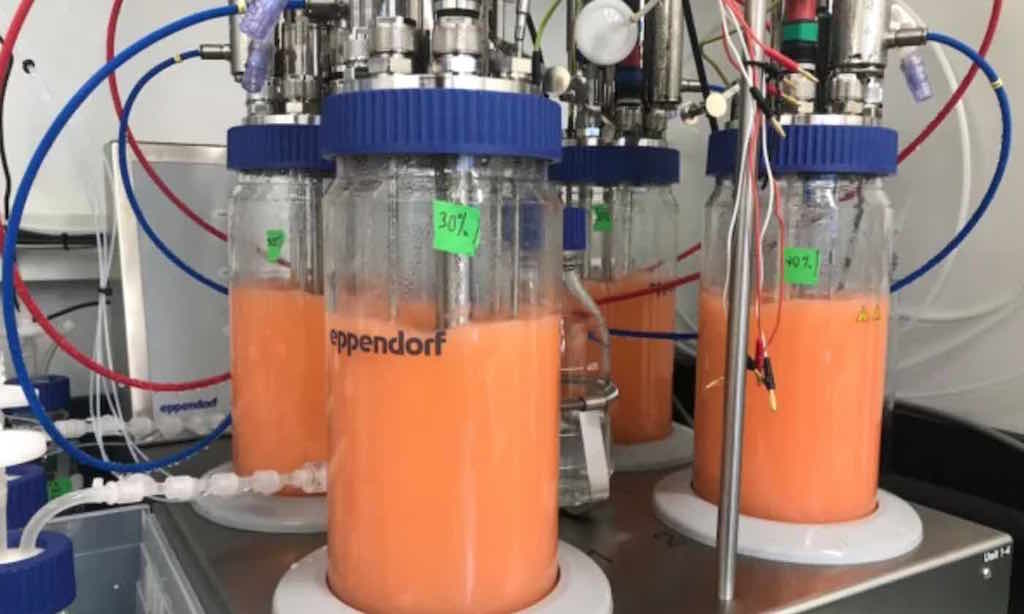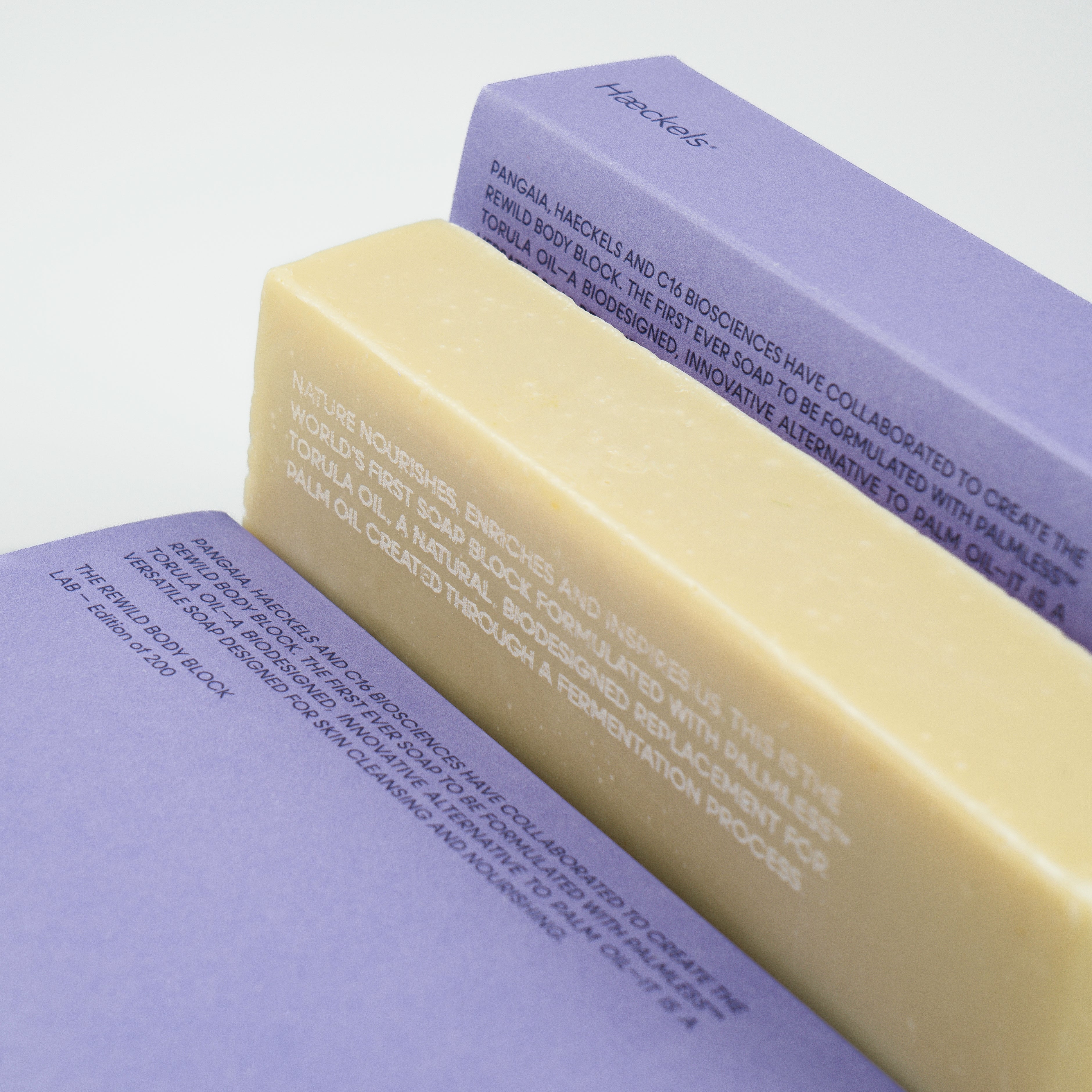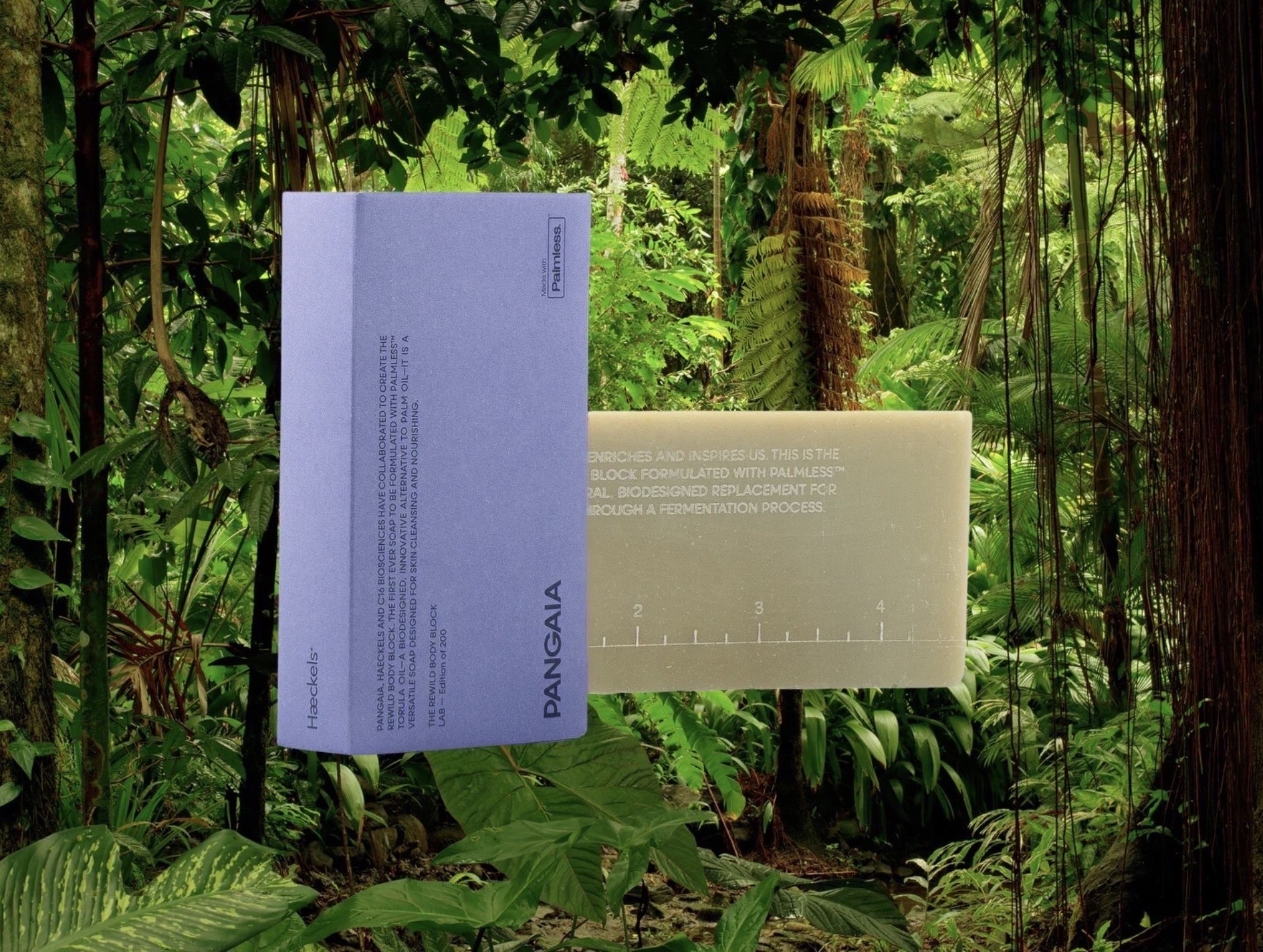This Soap Bar Is Made From Deforestation-Free Palmless Oil And Smells Like The Rainforest Burning
4 Mins Read
Using New York-based climate tech startup C16 Biosciences’ Palmless Torula oil, British material science firm Pangaia and skincare label Haeckels have together created the Rewild Body Block. The limited-edition soap bar is a sustainable alternative to palm oil variants, and is scented with natural oils to evoke the smell of rainforests burning down – spotlighting how biodiversity is cleared for palm oil plantations.
The microbial Torula oil is part of Bill Gates-backed C16’s Palmless brand, which was unveiled in 2022. Using naturally occurring organisms and fermentation, the oil is grown in bioreactors and is nearly chemically and functionally identical to palm oil – an infamously unsustainable oil. This sustainable, biomanufactured fat has inspired a collaboration between Pangaia and Haeckels, who have created a climate-friendly soap with a stock of only 200 bars.
Palm oil’s climate problem

A notoriously climate-destructive oil, palm oil is present in half of all supermarket items – across every product category. But it’s a major driver of deforestation, with rainforests cleared and various species killed to make way for palm oil plantations. Production of the oil has increased tenfold since 1980, and is set to increase by another 50% by 2050.
This kind of demand pushes producers to burn down more forests, a form of mass deforestation that emits greenhouse gas while removing trees that help absorb these emissions in the first place. A 2020 study found that the drainage of young palm oil leads to a 50% increase in carbon emissions.
It’s also a critical threat to wildlife including orangutans – 50% of whom are found outside national parks due to deforestation – and rhinos. The industry is also linked with human rights violations, with Indigenous communities losing their lands and villages, and workers exploited with poor working conditions and pay.
Additionally, 90% of the world’s palm oil trees are located in the rainforests of Indonesia and Malaysia, and they have been directly linked to deforestation in these regions. In August 2019, Indonesian forests were engulfed by wildfires caused directly by palm plantation trees. And according to one estimate, tropical deforestation accounts for about 20% of all greenhouse gas emissions annually.
All this makes the use of palm oil a massive issue. It first replaced animal-based ingredients in personal care products like soaps, shampoos, lotions and makeup, and now, 70% of personal care items contain one or more palm oil derivatives.
A sustainable vegetable oil

In light of these facts, innovations like the Palmless Tarula oil seem more urgent and needed than ever before. “Palmless was born [out] of dissatisfaction,” Margaret Rimsky Richards, global marketing head at C16, told Dazed Digital. “Our founders witnessed firsthand the devastation created by the palm oil industry and wondered why we are still making products linked to such destruction. They wanted to do better as we face the urgent mandate of climate change.”
The process of creating the Tarula oil takes through fermentation seven days – significantly less than the seven years it takes for an agricultural palm tree to yield oil. The £30 beige Rewild Body Block, which comes in cotton and bamboo packaging, leverages seaweed extract, squalene, aloe vera, mandarin peel and vetiver root to complement the woodsy aroma.
“We set out to create a sustainable alternative to palm oil and in the process developed a novel oil that functions like palm oil, but is also bursting with other great stuff – carotenoids such as beta carotene, torulene and sterols such as ergosterol, a powerful provitamin D,” explained Richards.
She added: “We’re certainly betting on Palmless playing a significant role – not only in helping satisfy the explosive global demand for palm oil without having to further rely on deforestation, but also in helping ensure greater stability of supply.”
“What we’ve been able to achieve with Rewild is very special,” Haeckels managing director Charlie Vickery told Dazed Digital. “We very firmly believe that lab-grown ingredients are the next frontier for sustainability. The resource intensity of farming natural ingredients is staggering; what C16 Biosciences has done through their efforts is replicate something made by nature but in a much less resource intensive – and destructive – manner.”
While, the Rewild Body Block isn’t the only future-thinking eco-innovation in the soap industry – Canadian startup CleanO2 uses captured carbon and beer to make a climate-negative body soap, for example – it’s a major win for consumer brands looking to ditch palm oil as part of their environmental targets.
And now, C16, which raised $20M in a Series A round in 2020, aims to harness Palmless’s power across a wide range of consumer packaged goods applications, including beauty, personal care, home care and food.




